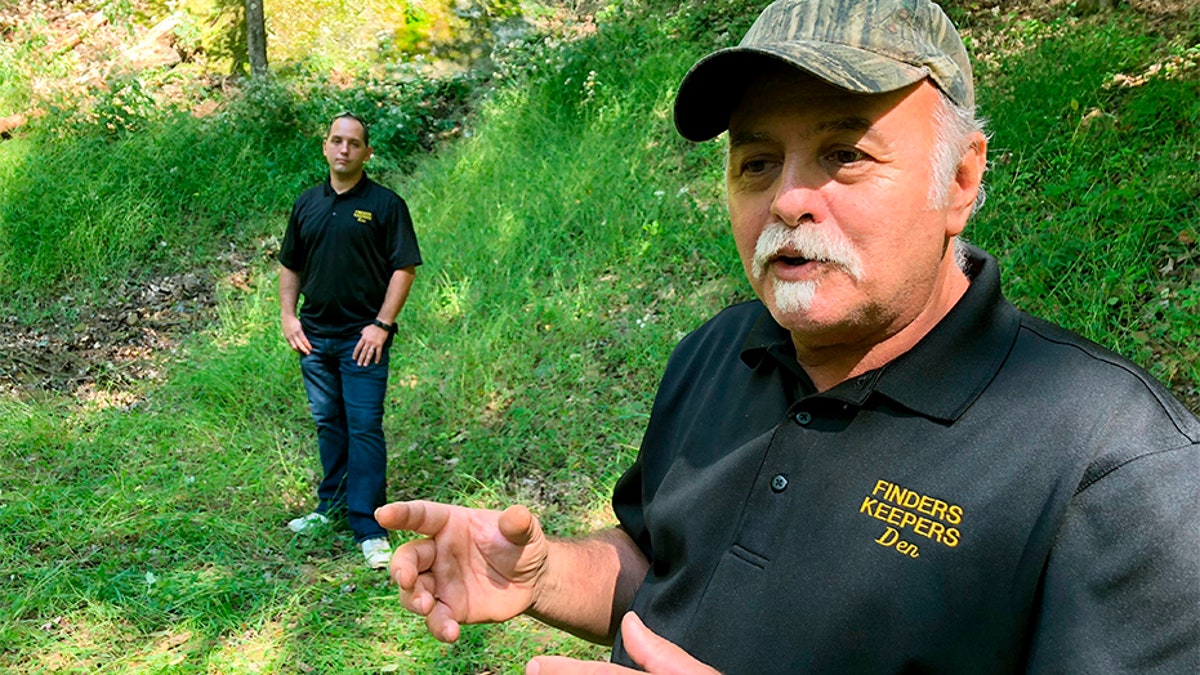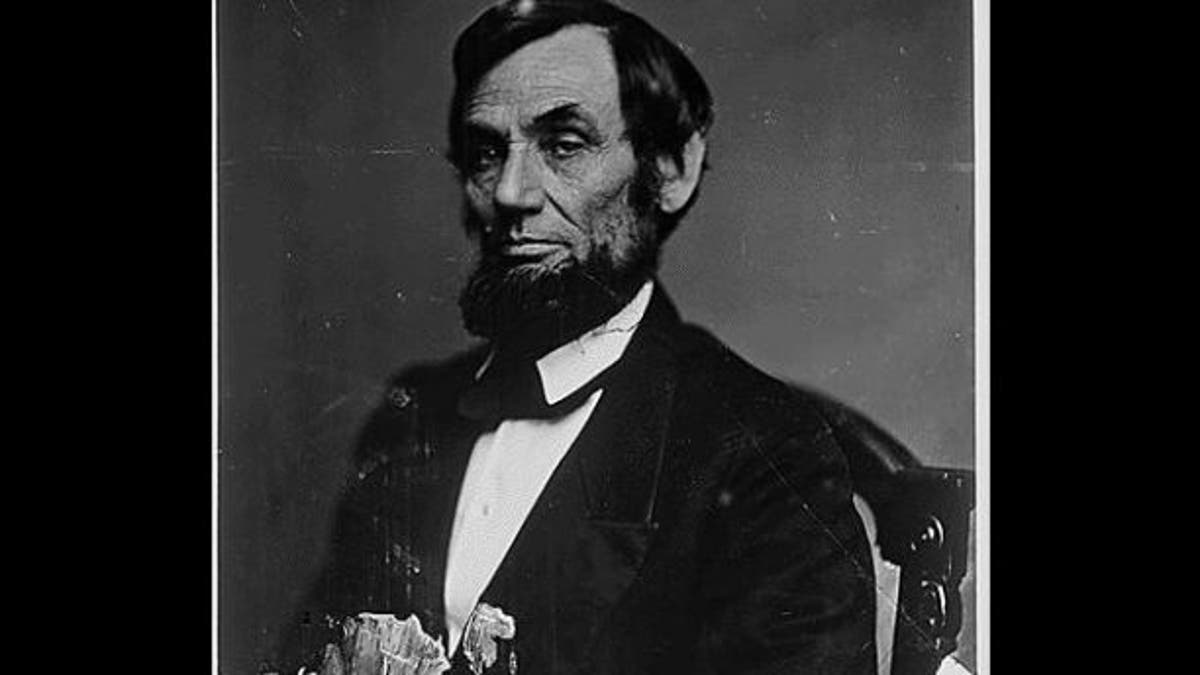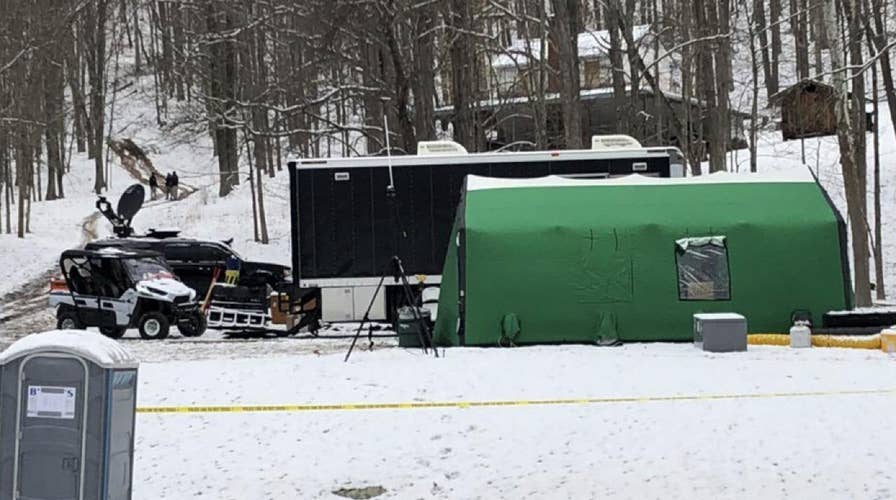Treasure hunters: FBI acting suspiciously over Civil War-era gold
A treasure hunting father and son are accusing the FBI of acting suspiciously around a Civil War-era excavation site in Pennsylvania believed to be filled with gold.
A pair of Pennsylvania treasure hunters and their lawyer are accusing the FBI of playing games and acting suspiciously about a dig at a rural site believed to contain a massive stash of Civil War-era gold -- which may be worth up to $250 million.
The accusations from Dennis and Kem Parada, and their attorney, Bill Cluck, came months after the bureau said it dug a hole in Dents Run and found nothing. The father-and-son duo felt convinced that area of state-owned wilderness northeast of Pittsburgh holds a hidden stash of gold and the pair claim the FBI went back on their word to let them watch the excavation. And legal efforts to shed more light on the dig have so far been unsuccessful.
“I don’t understand the FBI’s behavior. Why would search warrants be sealed at this point in time? The project is over,” Cluck told Fox News on Tuesday.
“I have no idea what motivation the FBI would have for hiding gold if in fact it was there,” he added. “There is no logical explanation except their behavior is suspicious.”

Dennis Parada, right, and his son Kem Parada stand in September at the site where the FBI dug for Civil War-era gold in March. (AP)
THE LEGEND OF THE BURIED GOLD
The tale of the treasure being buried in Dents Run – which has been met with skepticism from state officials and historians -- dates back to around the time of the 1863 Battle of Gettysburg.
The story has it that the Union Army dispatched two wagons to deliver the lucrative cargo from West Virginia to Harrisburg, taking a circuitous route through the wilds of northern Pennsylvania to avoid Confederate troops.
The Associated Press says the shipment was believed to have 26 to 52 gold bars – each weighing 50 pounds and worth up to $50 million total today.
The Paredas, Cluck told Fox News, have “scientific instrumentation indicating that there was precious metals buried at this site” and that the FBI, with the help of a device called a gravimeter, also detected something there.
But the Paradas and Getler told the Associated Press that the government contractor's scan detected a much larger quantity of precious metal than previously thought — 7 to 9 tons — an eye-popping haul that could be worth more than $250 million if every ounce of it was gold.
How that alleged gold ended up inside the Earth is a mystery.
The Pittsburgh Post-Gazette, in a 2008 feature on the legend citing Lost Treasure magazine, said the wagon train was operated by a Union lieutenant named Castleton, a civilian guide named Connors and eight cavalrymen. Only Castleton, it said, knew the contents of the wagons when they set off from Wheeling, West Virginia.
Along the way to Harrisburg, Castleton battled a severe fever and at one point let slip that treasure was being transported. Connors took over the mission, the Post-Gazette reported, but when they got to around Driftwood – just east of Dents Run – the gold would never be seen again.
The newspaper says one version of the story has Connors and two of the men leaving behind the wagons to seek medical help for Castleton in a nearby village, only to return days later to discover the remaining men stole the gold and headed south.
Another version, it said, had Connors stumbling into the town of Lock Haven and claiming that everyone with him had been killed by backcountry bushwackers who ransacked the wagons and made off with the loot.
But is either account even real?
Pennsylvania Department of Conservation and Natural Resources spokesperson Chris Novak told the Post-Gazette in 2008 that “we've been unable to pry any proof of lost gold in Elk County, let alone where Mr. Parada said it is located.” A Gettysburg College history professor also said there are no listings in Union Army records for a Lt. Castleton.
"There's no documentation, description, letter, official report, no paper trail," of the story, the professor, Allen C. Guelzo, added.

President Abraham Lincoln reportedly ordered the gold shipment for payment to Union Army soldiers, Dennis Parada has been cited in news reports as saying. (AP)
MODERN DAY SEARCH TURNS UP 'NOTHING' -- BUT WAS THERE REALLY SOMETHING THERE?
Parada, a longtime fortune hunter, reportedly became interested in the legend in 1975 after hearing it from a man who walked into the furniture store where he had worked.
At the end of the court-sanctioned excavation in March though, the FBI escorted the treasure hunters to the snow-covered site and asked them what they saw. They gazed at the pit. Not so much as a glimmer of gold dust, let alone the tons of precious metal they said the contractor's instruments had detected.
"We were embarrassed," Dennis Parada told The Associated Press. "They walk us in, and they make us look like dummies. Like we messed up."
Since that day, however, neighbors' accounts of late-night excavation and FBI convoys have fueled suspicions that the agency isn't telling the whole truth.
"After my years of experience here using equipment, there was something here, something here of value, some kind of precious metal. And whatever it is, it's gone now. And that's what I want to get to the bottom of, is what was in that hole," Kem Parada said.
The FBI said at the conclusion of its excavation “nothing was found” and the bureau repeated that statement when reached Tuesday by Fox News.
"FBI investigators must follow the facts. The fact here, as previously stated, is that nothing was found in the excavation. The FBI unequivocally rejects any claims or speculation to the contrary," a statement from the FBI's Philadelphia Division said. "While we felt it important to respond to the false supposition promulgated in a media report today, as this matter is related to an ongoing investigation, any additional comment would be inappropriate at this time."
The Associated Press reported a bureau spokeswoman told them last week court documents related to the dig are sealed.
The news agency says the Paradas spent five years digging in a cave on state land, and two more years drilling atop the cave, before going to the FBI in January with their evidence which eventually led to the court-ordered excavation.
The treasure hunters and Getler said they had an agreement with the FBI to watch the excavation. Officers instead confined them to their car — out of sight of the wooded hillside where a backhoe was digging — for six hours that first day before they were finally allowed up the hill. The digging proceeded for another hour before an agent called an abrupt halt at 3 p.m., saying the team was cold, tired and hungry and it would be getting dark soon. They were just 3 feet from the target.
"I said, 'You've got three hours of daylight and we're only 3 feet away,'" Dennis Parada recalled. He said the agent replied, "Denny, we're going, we're going."
Whether the FBI actually left the woods that afternoon is itself an open question.
"I don't understand why they played that game on us." -- Dennis Parada on the FBI
Cheryl Elder, who lives nearby, told the Associated Press she heard what sounded like a backhoe and jackhammer at least until 2 a.m. — the noisy machinery keeping her awake and annoying her because she had to rise early for work — and she saw that the hillside was brightly lit.
"It was just real loud all night," the former constable recalled. "It was driving me nuts."
The second day of the excavation was similar to the first, according to the Paradas and Getler. They said they were confined to their car for several hours, then escorted up the hill to the dig site — by then a large, empty hole. The FBI had finished the excavation out of their presence, they said.
The Paradas said they were cheated of a moment they had spent years working for.
"You can only dig the gold up once, and that's a historical moment. And here we were robbed of all that," Dennis Parada told the Associated Press. "I don't understand why they played that game on us."
After the Paradas and Getler had left, Elder said, she saw a half-dozen black SUVs at the site. One by one, she said, they backed up to the bottom of the hill and rendezvoused with one of several all-terrain utility vehicles. Elder tried using her binoculars, but couldn't make out what investigators were transferring from the ATVs to the SUVs.
Heather Selle, who lives in nearby Weedville, said she was getting her kids ready for school on the morning of the second day when she spied a convoy of FBI vehicles driving past — including two large armored trucks.
"There was too many people involved, there was too much hush-hush, and there's been too much seen," said still another resident, Garrett Osche, whose garage was used as a staging ground for the FBI's initial foray to the Dents Run area weeks before the dig. "Why do you close the road down if you're not loading something out? If you're not sneaking something, why do you need to do what they did?"
If Union gold was indeed recovered from the woods, the discovery of a historic and extremely valuable trove of federal property on state-owned land would almost certainly touch off a court battle over who owns it, and whether the Paradas are entitled to a cut.
In May, Cluck filed a Freedom of Information Act request for documents on the FBI's investigation into the legendary gold. The agency demurred, claiming it had no files it could share. Cluck appealed to Republican U.S. Sen. Pat Toomey for help, and, a few weeks ago, the Justice Department ordered the FBI to do a more thorough review. If the bureau determines there are documents it can turn over after all, it could still take months or years to reach that point.
The Associated Press contributed to this report.


